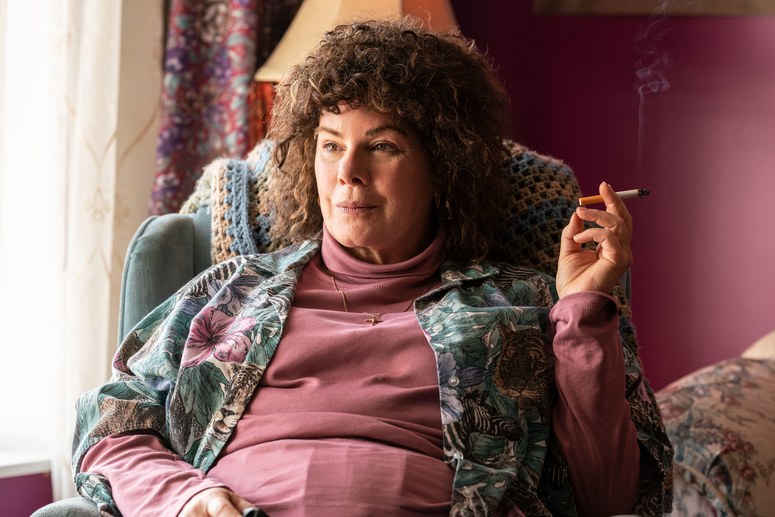Lifetime's New True Crime Movie *Love You to Death* Is Unlike Anything You've Ever Seen

Lifetime has never shied away from dark, twisted, real-life stories, and this Saturday’s Love You to Death is no exception. The film—which stars Oscar winner Marcia Gay Harden and Emily Skeggs—tells the disturbing events that led to the murder of a seemingly perfect mother caring for her sick daughter. Harden plays Camile, a single mom suffering from Munchausen Syndrome by Proxy, a mental illness in which a person acts as if an individual they’re taking care of has a physical or mental illness when the person is not really sick.
Harden had never heard of the syndrome but was totally captivated by the story, comparing it to a car wreck you can’t look away from. In fact, neither could Hulu, which airs a similar telling of the story later this spring with their limited series, The Act.
Whichever story you watch though, Harden and Skeggs hope the focus remains on mental health. “We can make assumptions about people with mental illness, we can make assumptions about other people’s families, but we don’t know,” Harden says. Here, she and Skeggs explain what it was like to immerse themselves into their respective roles, and the lessons they took away from it.
Glamour: How did you both get involved with this film?
Marcia Gay Harden: Emily’s friends were casting her before this even started shooting.
Emily Skeggs: Yeah, I’m a true crime junkie, so I had friends who said, ‘You need to watch this documentary, and also, you need to play this girl when it’s a movie.’ I had one friend who messaged me while I was in negotiations, and I was like, ‘Just hang tight, just wait two weeks and I’ll tell you something!’ So I was excited to dive into it.
MGH: For me it was a no brainer. I love Lifetime and the direction that Lifetime is going. I had never heard of Munchausen Syndrome by Proxy or this story, but when I read it, it was like a car wrecks—you couldn’t look away. It was liberating to play this character. It’s fun to transform, but it was a lower, darker place to go, and a place that was full of so much sadness and darkness and pain. It’s the juice of being an actor, for sure.
ES: It made me think about perspective and love in a really different way and question a lot of things. You see these kinds of cases and think, I know what’s going on here, or I know exactly what I would have done if I was in their shoes. It made me really question things.
How much research did you do into what actually happened?
ES: And happens. And I really believe the only reason we really know about this case is because it ended in a murder and ended in violence. I think there are a lot of people living with this syndrome and doctors don’t know how to deal with it. There’s no protocol for it and no system in place to help people with this syndrome or to help doctors help people. It’s really fascinating.
MGH: Emily said this earlier, and it’s true: people who are sick like this don’t think they’re sick. People who are racist don’t think they’re racist. People who do crimes against humanity usually don’t think they are. So there’s not this awareness. I would love to have read a journal of Camille’s, but she wasn’t the type of person who would do that. That doesn’t exist. So she’s doing what she thinks she needs to do for her survival. And she would have taken it further. That’s what is scary. I think she would have taken it to the point of mentally incapacitating her so that all the world would know she’s mentally disabled and now I need to care for her for the rest of her life. It’s such an interesting story because in a terrible way, [Esme] breaks free. But I’m subjugating all of the person to a life to never knowing who she is as a human being. But I love that it’s a very current story.
